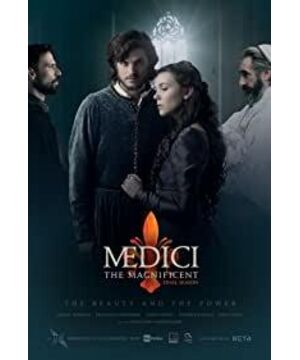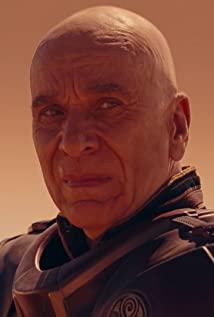The two episodes S1E1-S1E2
mainly use the way of interlude, which not only tells about Cosimo's middle-aged life and his youth experience. While the description of the youth's experience seems to be scattered but constitutes the main part of the hero's setting, the banker who does not want to be an artist is not a good Florentino master. In the first love story of dog blood, the three main factors of the male protagonist's love of art, unwilling to take the initiative to do evil (exo me?), but smart and means, and attaching importance to family are well reflected. Although I think it is a bit of a virgin to be unwilling to be stained with blood, at first I was worried that the plot would develop in the direction of little white flowers, and the so-called means seemed to be just luck when I was young. But the various performances in the second episode of the year fully reflect Cosimo's intelligence and determination. Richard finally gained some IQ, and the baby was very pleased.
The two episodes S1E3-S1E4
are relatively depressing. E3 is more about inheriting the portrayal of family from the first two episodes. In the first two episodes, the father was ruthless and decisive in the consideration of the family. In this episode, the subtle rift with the mother because of the twin brothers disappeared in one after another. After the storm, hugging each other was silent.
E4 Cosimo is behind bars. Therefore, the more outstanding characters in these two episodes are Albizzi and the hero's wife. Previously, the plot of being imprisoned by a fake spoiler was worried that the male protagonist and the Madonna plot would have a IQ drop, and he would rather die than persuade his family not to attack and save the city by force, but in the end, he found that the screenwriter is still very disciplined. It is said that the Virgin will not care for the residents of the city, and the owner of the family who is willing to die to bankrupt his opponent once again echoes the character design of the first two episodes. So it seems that he is too inhumane to his wife, and the sugar in E3 is broken into slag in minutes.
S1E5-S1E6
The E5 exile story actually felt pretty bland. The title of temptation is really in line with the mood of the male protagonist and his wife. First love is always unforgettable, but one remembers the promise of loyalty, the other. . .
E6 has to say that the ending is simply not too exciting. When Cosimo asked the mercy to give a white flower speech for his opponent in the parliament, the old lady was almost unable to hold it, and she got goosebumps. How did he come back from his exile? How could he return the tiger to the mountain? But the ending gave the baby a big slap in the face. The assassination scene intersects with Pope's sermon, which corresponds to the foreshadowing of the seemingly clueless mercenary ahead. Looking back at the white flower speech, I shudder. Don't be too hypocritical.
Overall, Europeans have mixed feelings about the Medici family due to its position in the history of the Renaissance. Therefore, the protagonist will naturally beautify, so he has the torture of conscience and the pursuit of art, but fortunately, the screenwriter did not let the protagonist lose the means he should have. . Looking forward to the last two episodes.
S1E7-S1E8
E7 title name purgatory is very abusive at first glance, everyone is suffering, conflicts and suspicions between husband and wife, brothers, master and servant all break out in this episode, the family's predicament, blood on hands The torture of conscience is concentrated on the male protagonist. Although the male protagonist here is still tormented deeply, his restraint as a mature politician has been seen from his performance in parliament and his righteous lies in the face of his wife, the Pope (although the wife can see it at a glance). Compared with the more aggressive opponent (yes, the more talkative!!), the arrangement of the council shows the protagonist's deep understanding of the republic, and compares the opponent's death to tyrant's accusation, and even though he has actually controlled the overall situation, he still Be humble and calm on the surface.
This episode of E8 is mainly to complain. What the hell was the final outcome of the father's assassination line, so it was the pity of the little man who fanned the wings of the butterfly, but in the end, he forced the loyal little follower away and killed his younger brother? ? And then you have a righteous background, you don't want your father to be so bad? ? I just want to tell the screenwriter that after 8 episodes of suspense, will you show me this? And it seems that the victory of the male protagonist in the end is too accidental, although the cooperation with the Pope in the end is still a compromise.
Didn't the younger brother's plot really move the experience of the grandchildren? Do you want a second season! ! If it weren't for the story of Lorenzo's grandchildren, wouldn't Pazzi have to kill his younger brother again?
and Contessina, alas, the love and awakening of the male protagonist for the female protagonist came so suddenly. On the contrary, the heroine's feelings are more moving. One second, she couldn't help but make up her mind to leave. She didn't even care that her son's heir status was threatened. The next second, when she saw her husband in trouble, she couldn't help but grab her husband to support and help her. There is really no way to do this (of course, to take care of the historical trend, it must be that this kind of heroine tolerates a happy ending and feels that Contessina is a pity.) But think about it, everyone in the play is for the so-called Medici family. Dedicating everything, this may be the helplessness of family inheritance and reproduction.
View more about Medici reviews











